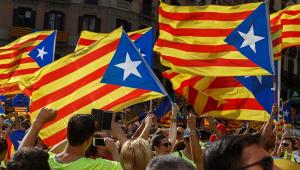Contrary to what the majority of the electoral polls predicted, the People’s Party (PP) won the election but without enough seats to form a solid majority and govern.
To do this, it would need not just the support of the far-right VOX and also the Basque party Nationalist Partido Nacionalist Vasco (PNV), among others, something to be virtually impossible due to the radical differences between them.
The alternative government would be in the hands of the Spanish Socialist Worker’s Party (PSOE). They would also need support from other parties - in this case the one of the far-left Sumar plus the one of the Catalan nationalist parties the Esquerra Republicana de Catalunya (ERC) and Junts per Catalunya (JUNTS).
Fear and loathing
After the PP had taken away nearly all the power that was held by PSOE in the municipal and regional elections celebrated in May, many were predicting a huge victory for the PP. However, the socialists managed to close the gap.
This has happened mainly because the left-wing parties used an effective narrative based on the fear of the coalition between PP and VOX which proved effective in mobilising the progressive electorate, specially in Catalonia.
The cause of this instability lies in two deeper reasons. One is political polarisation. There are two blocks, the right on one side and the left and nationalists on the other. It is impossible to find common ground. The centre has vanished.
The polarisation in the political class has transferred to society, moving further away from the climate of consensus and national reconciliation that underpinned the political regime that emerged after Franco’s death.
The other reason is the closed list proportional representation electoral system used in Spain which virtually prevents members of parliament from voting against their party’s leadership.
This situation is an obvious threat for the stability of Spain’s economy as the country will need a stable government to deal with a return of fiscal discipline that the EU will impose from January.
PP leader Alberto Núñez Feijóo was called by the king to try to form a government but if he, as expected, fails to do so, it will be prime minister Pedro Sánchez who will be entrusted with the task. If he also fails, another election will be held.
But the Junts are demanding a formal referendum of independence for Catalonia. This could leave Carles Puigdemont, leader of Junts, as the kingmaker for the whole country. But he is a fugitive in Belgium, following the Catalan declaration of independence of 2017.
Another election would leave the country in limbo until at least December, affecting confidence in an economy that already shows signs of slowdown. And it is highly likely that the election outcome would be the same.
There is still another scenario that could be the best for the economy, although is the most improbable of all: a temporary coalition between the PP and the PSOE to implement the necessary constitutional and economic reforms. However, this would be near-impossible as the PSOE now is controlled by the left-wing faction, led by the general secretary Pedro Sánchez and José Luis Rodríguez Zapatero, who are radically opposed to any political deal with conservatives.
The moderate faction, including former party leader Felipe González, openly supports an ‘understanding’ between the two main forces in parliament. This option would require the triumph of reason over passions, something almost impossible to see in these times of populism.
Throughout the history of Spain, it has been a constant that political regimes don’t last beyond the life of their founding fathers and their generation. If the necessary stability to enable a reformist government is not achieved, this will be most likely the fate of the current regime.














